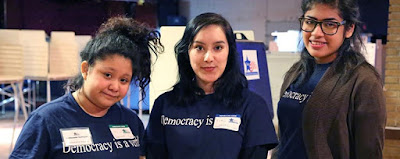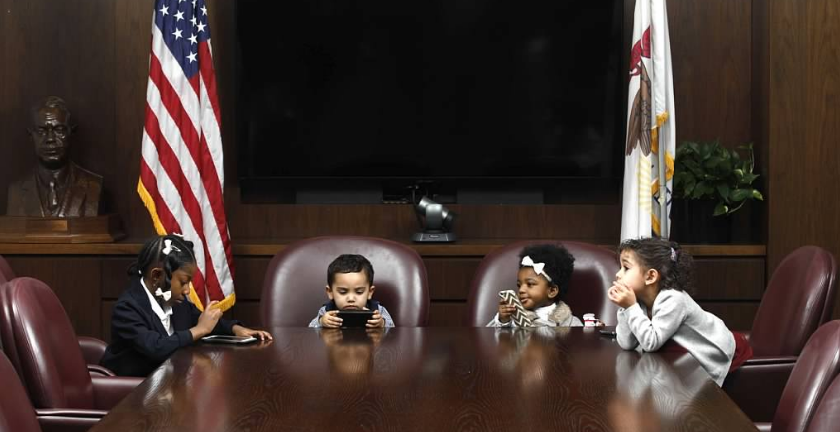Student Leaders in Elections
by Shawn Healy, Civic Learning Scholar
Young people participate in our democracy when they have the capacity, connections, and commitments to follow through. School-based civic learning is a critical contributor to this equation, and Illinois Governor Rauner’s recent signing if landmark civic education legislation is reason to celebrate. Also critical to youth civic development are real-world opportunities to contribute to democratic rituals like elections.
The Chicago Lawyers’ Committee for Civil Rights Under Law connected the two in their “Student Leaders in Elections” program that spanned three elections over the past two years. They collected more than 3,500 applications to serve as election judges from college students throughout the Chicagoland region. Nearly half of them served as judges in at least one election, and more than too worked two or more elections.
A follow-up case study published last month produced generalizable findings that contribute greatly to our understanding of the recruitment of students as election judges and the value they bring to election administration. A few findings are worthy of highlighting:
- Email was actually the most effective recruitment method contrary to the face-to-face tactics most successful in other forms of civic and political engagement.
- Bilingual students were among the most highly engaged and committed election judges. Many felt a special obligation to bring fellow citizens with limited English proficiency into the political process.
- Community college students also showed greater commitment than their four-year college peers.
- College election judges make the administration of elections more efficient given their comfort with the latest polling place technologies.
- Student judges were mobilized throughout the City of Chicago and were sent to understaffed precincts.
These findings speak to the value of the Student Leaders in Elections program and the need to sustain and grow it further. It goes without saying that the students themselves benefit for serving as vital cogs in the machinery of our democracy, and they are actually compensated for their efforts. Here’s hoping that programs like Chicago’s attract continued and new sources of public and private funding, and that the findings of the Chicago Lawyers’ Committee inform their development.






Comments
Post a Comment